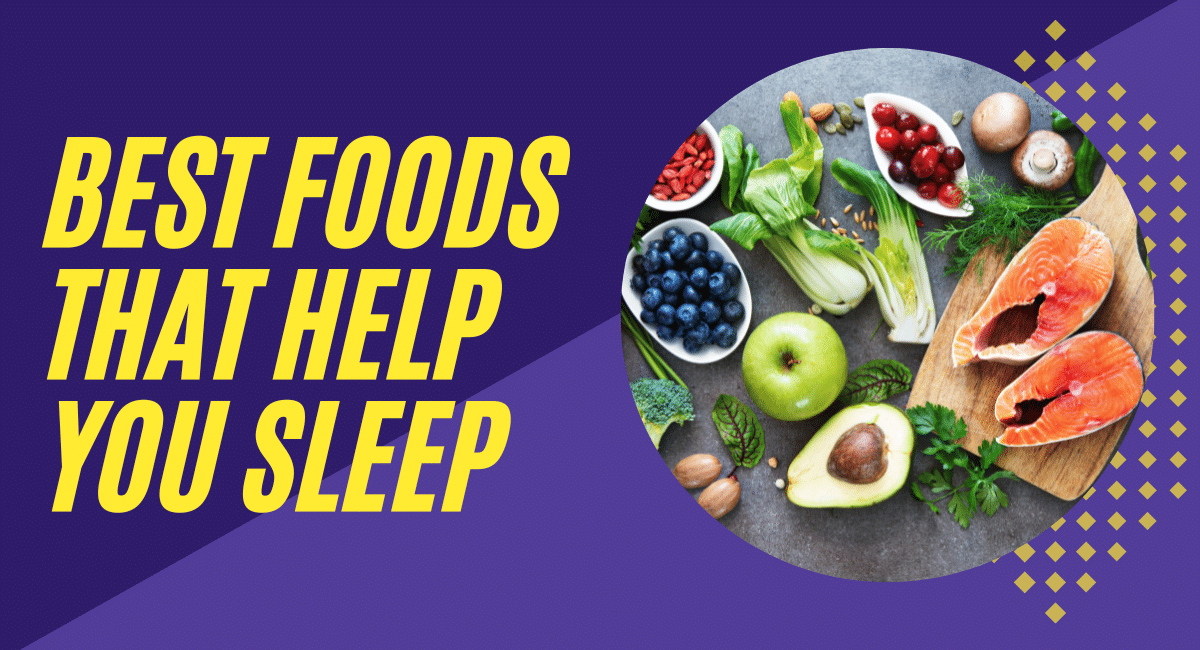Top 10 Sleep-Inducing Foods That Help You Sleep & Fight Insomnia

Eating the right food for insomnia is the best cure for sleep problems since resorting to pharmacological cures makes the person more drug-dependent and affects the natural effort to fall asleep.
Besides, the body develops immunity to lower dosage after some time and the insomniac has to increase the dosage in order to fall asleep.
Research has revealed that people with chronic insomnia mostly suffer from deficiencies of nutrients like Vitamins B, C and D, calcium, magnesium, manganese, potassium and zinc.
One of Nature’s most effective sleeping medicine is something which is sweet or starchy. Honey is a renowned soporific and so is a glass of warm milk. Research point towards protein-rich foods as soothing foods.
There are some basic principles you need to keep in mind while taking meals for Insomnia
-
- It is very important to eat your meals regularly. Taking meals at a set time helps your body’s biological clock. Remember that lunch is the time for the most important meal, and it should also be the heaviest meal of the day.
-
In general, favor warm, cooked, substantial meals. Balanced, solid meals, eaten or a regular schedule, will help soothe and settle your mind and make the body more comfortable at bedtime.
In describing nutrition, there are mainly six tastes : sweet, sour, salty, pungent, bitter, and astringent.
The first three tastes are those that most effectively help in settling body rhythms. While a balanced diet will include all six tastes, these three should be emphasized.
It’s important to note that “sweet” does not mean just “sugary” but includes many wholesome foods such as milk, bread, grains, and pasta.
Although the sweet taste is beneficial for inducing sleep, concentrated sugar eaten by itself often gives a quick energy boost that can make you feel restless. If you eat a sugary sweet, take it along with something more nourishing, such as milk, which will balance the effect.
The Six Tastes And Examples
Sweet - sugar, milk, butter, rice, breads, pasta
Sour - yogurt, lemons, cheese, vinegar, sour-tasting fruits
Salty - salt
Pungent - spicy foods, ginger, hot peppers, cumin, radishes
Bitter - bitter greens (endive, chicory, romaine lettuce); other green, leafy vegetables; tonic water; turmeric; fenugreek
Astringent - beans, lentils, pomegranates, cabbage, apples, potatoes, pears
Recommended food for Insomnia
Dairy. All dairy products helps sleep. Always boil milk before you drink it, and drink it warm. Don’t drink milk with a full meal.
Sweeteners. All sweeteners are good (in moderation) for pacifying relaxation. However, concentrated sugar, when eaten by itself, can give a quick energy boost and make you feel extremely restless. Raw, unrefined sugar, available in health food stores, is preferable to refined sugar.
Oils. All oils are good, as they help in inducing sleep.
Grains. Rice and wheat are very good. Reduce your intake of barley, corn, millet, buckwheat, rye, and oats.
Fruits. Favor sweet, sour, or heavy fruits, such as oranges, bananas, avocados, grapes, cherries, peaches, melons, berries, plums, pineapples, mangoes and papayas. Reduce astringent or light fruits, such as apples, pears, pomegranates and cranberries.
Vegetables. Beets, cucumbers, carrots, asparagus, and sweet potatoes are good. They should be eaten cooked, not raw. The following vegetables are acceptable in moderate quantities if they’re cooked, especially with ghee or oil and spices : peas; green, leafy vegetables; broccoli; cauliflower; celery; zucchini; and potatoes. It’s better to avoid sprouts and cabbage.
Spices. Cardamom, cumin, ginger, cinnamon, salt, cloves, mustard seed, and small quantities of black pepper are acceptable.
Nuts. All nuts are good.
Beans. Reduce all beans, except for tofu.
Meat and fish (for non vegetarians). Chicken, turkey and seafoods are acceptable. Beef should be avoided.
Proteins also contain the essential amino acid, tryptophan, which is associated with sleep. Milk is often given as a bedtime drink because of its tryptophan content and can, in fact, encourage sound sleep.
Typtophan is needed in the production of the brain chemical, serotonin, which has a calming effect. However, although protein based foods, such as poultry, cheese, meat and fish are rich sources of tryptophan, it does not necessarily follow that tryptophan-rich foods will automatically induce calmness and sleep. That is because amino acids tend to compete with each other for absorption, often leaving tryptophan last in line.
In other words, it may not always be well absorbed. A meal containing carbohydrates can prove more effective in increasing serotonin levels in the blood stream.
Points to Remember
-
- Follow the good old granmother’s recipe of a warm glass of milk before bedtime and you can be assured of a sound sleep.
-
- Honey is another sweet messenger of sleep.
-
- Not all protein-rich foods can make you sleep, so avoid the heavy ones like meat, cheese, etc.
-
- Keep miles away from caffeine if you are suffering from insomnia.
-
Exclude sugar and sugary products, white flour, colas, alcohol and deep fried foods from your diet, especially at night.
If all this fails, make your beloved sing lullabies for you.

Patrick Mahinge
With over 10 years of experience in sleep health and consumer reviews, Patrick Mahinge helps you find the best mattresses, pillows, beds, and snoring aids through in-depth testing and expert analysis.
Related Articles

Dream Interpretation and Analysis: What Do Your Dreams Mean
Read more about this article...
Read the Full Feature →

How to Reset Your Body Clock Fast And Get Better Sleep Every Day
Read more about this article...
Read the Full Feature →